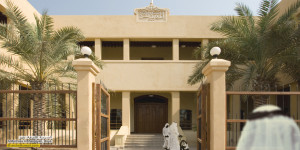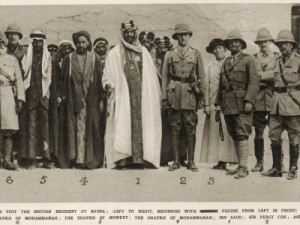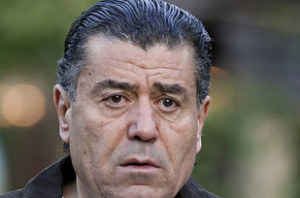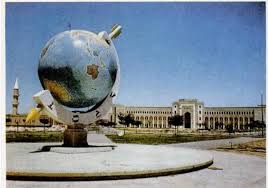




“The Houthis’ rise to power reached a new peak in September, when the group successfully seized control over the capital, Sanaa, following a seemingly effortless armed campaign. Prior to the group’s arrival in Sanaa, the Houthis trailed across Northern Yemen, dislodging and challenging Yemen’s main powerhouse, Islah — a faction that acts as a political umbrella for several groups, including the Muslim Brotherhood and Salafis — at every corner of every road. Yemen’s former undesirables accomplished what no one thought possible when they defeated Islah’s founding tribal family, the Ahmars, in their ancestral home of Amran, thus throwing the country’s balance of power off its axis. Endowed with a new sense of power, Abdul-Malik al-Houthi presented himself as the vessel of Yemenis’ discontents, the spokesperson of the weak and the poor, the liberator of Yemen…………”
This article makes it seem as if the Houthis were the classic unpopular abused ‘nerds‘ of Yemen who got their revenge in the end. Sort of like some people might think of Hezbollah compared to the bygone Lebanese society preceding the civil war years. Maybe it was so, but it is too early to tell in Yemen. It is always too early to tell how things will turn out in Yemen, just as it is in Afghanistan.
Yemen has had close tribal and trade ties with the Hijaz region of the Arabian Peninsula since pre-Islamic days. It is all mentioned, nay recorded, in the Holy Quran. The Al Saud invaded the country in the 1930s but wisely pulled back after annexing a huge chunk of the northern part of that country.
In 1962 the Imamate monarchy of Hammediddeen was overthrown by military officers, after failed earlier attempts. The new and newly-deposed Imam started a lasting Arab tradition: he sought asylum and military help from his family’s old enemies, the Al Saud. Among those the Saudis enlisted to help reverse the order in Yemen were the predecessors of the Houthis (or now Ansarallah). With Nasserist Egyptian forces helping the Republicans on their border, the Al Saud struck back. The British who were worried about their colony in Aden and the ever-willing humorless Jordanians also helped. Nasser did not win the Yemen war of attrition, but he managed to salvage a compromise out of it: a republican regime in Sana’a, but a conservative one. That Yemen War degraded and tied down the Egyptian military, and any fighting experience gained did not benefit it in facing the shocking Israeli blitzkrieg of 1967.
Saudi media that are owned by the royal princes like Asharq Alawsat, Al-Hayat, and Alarabiya, have now dug up photos and other material from those 1960s days to show that the Houthis are a bunch of savages. Except that they were doing then what the Al Saud have always done, what they still do.
More than forty years later the Al Saud tried for a repeat, sending a military incursion into Yemen for the third time since their kingdom was established. They tried to intervene militarily on the Yemeni border against a Houthi rebellion in 2009. The lightly-armed Houthis handed a resounding defeat to Prince General Field Marshal Khalid Bin Sultan Al Saud and his superbly-armed but inept military. Which means the Saudis and their Emirati sidekicks will now probably limit their intervention to what they can do best: pump more money and sponsor acts of political and other disruption.
But we know that Yemen is not hospitable territory for outside invaders and meddlers. The current Yemen conflict is further complicated by Al-Qaeda (AQAP) imported from Saudi Arabia, local Wahhabis nurtured by Saudi money and ideological education, and Southern separatists. Any foreign power that thinks it can tame the country by military force will be disappointed: just as the Egyptians and the Saudis were disappointed in the past. That is why Arab media speculation on the Gulf about a coming Iranian intervention is mostly propaganda aimed at discrediting the Houthis and their allies. They know that nothing can excite and motivate American policy-makers more than mentioning the dual threats of Al-Qaeda and growing Iranian influence.
Yet the Iranians have had an interest in Yemen in the past, the Persians even controlled the country in ancient times, appointing satraps to rule it. The mullahs know that Yemen pokes uncomfortably right into the Saudi ribcage, so it might be tempting for them. Last year Gulf media reported that a ship carrying weapons from Iran was apprehended off Yemen. But they are probably not reckless enough to intervene in Yemen directly, at least they are not that reckless yet. So far they have avoided direct military intervention even in the more vital conflicts in Syria and Iraq. And it is not clear how things will settle down in Yemen, if and when they do settle down.
But then wars and revolutions and military incursions have their own logic: they can take you in directions you had never intended to go…………
Cheers
MHG
m.h.ghuloum@gmail.com









